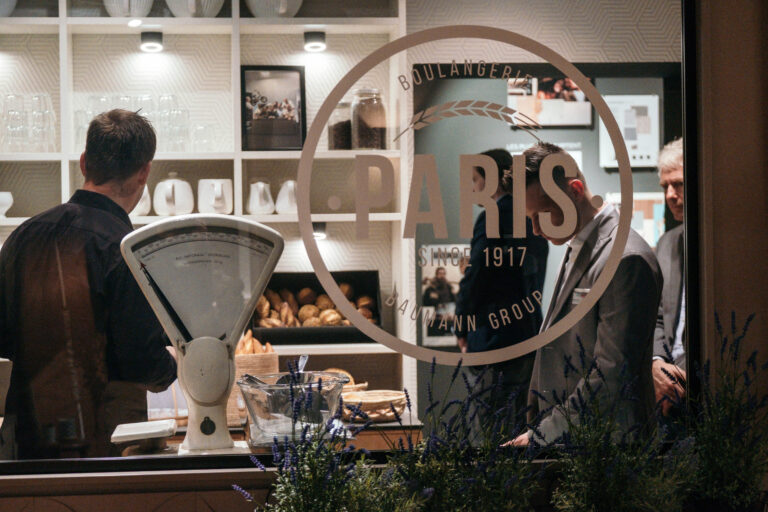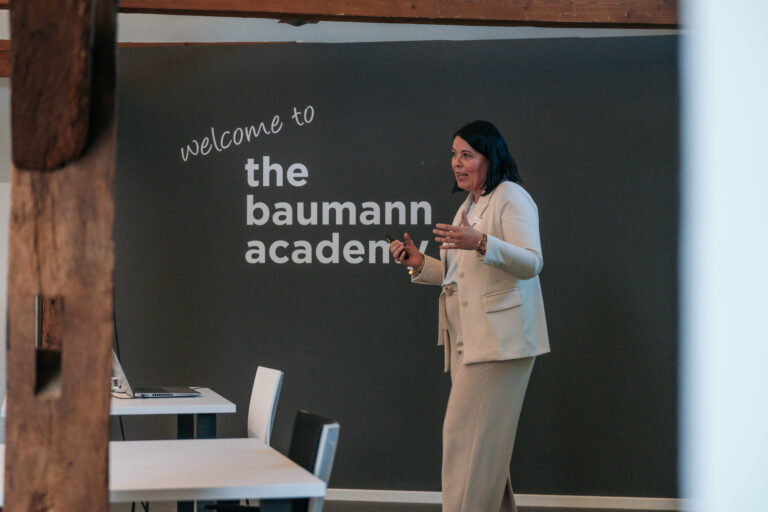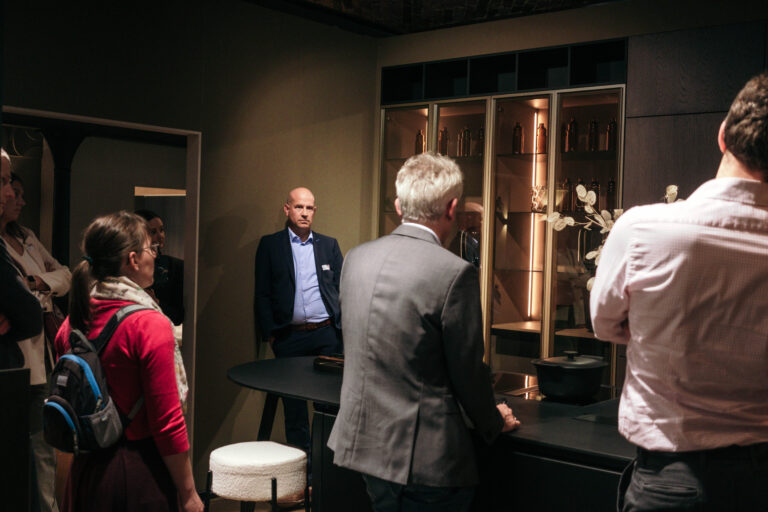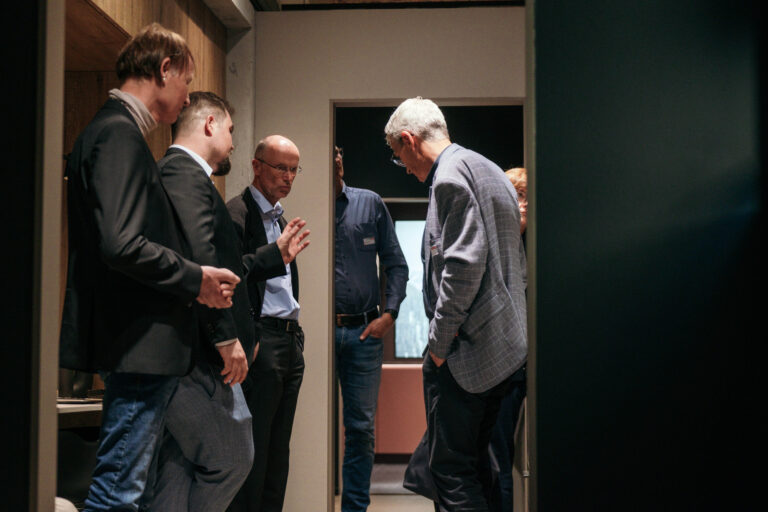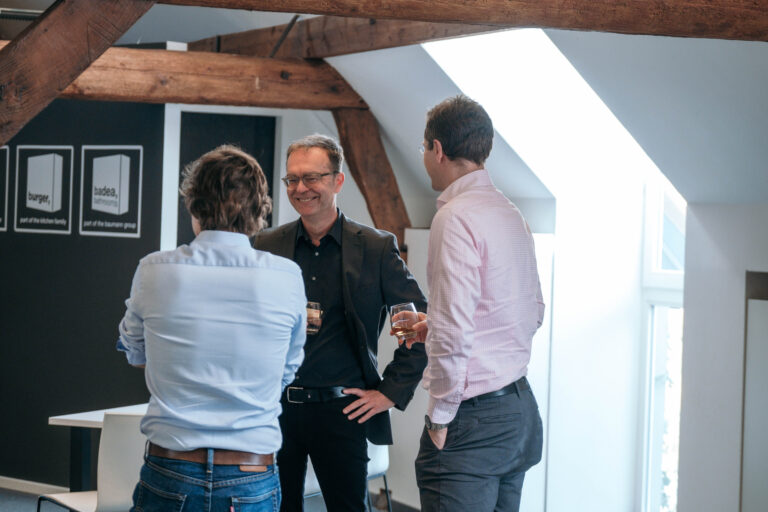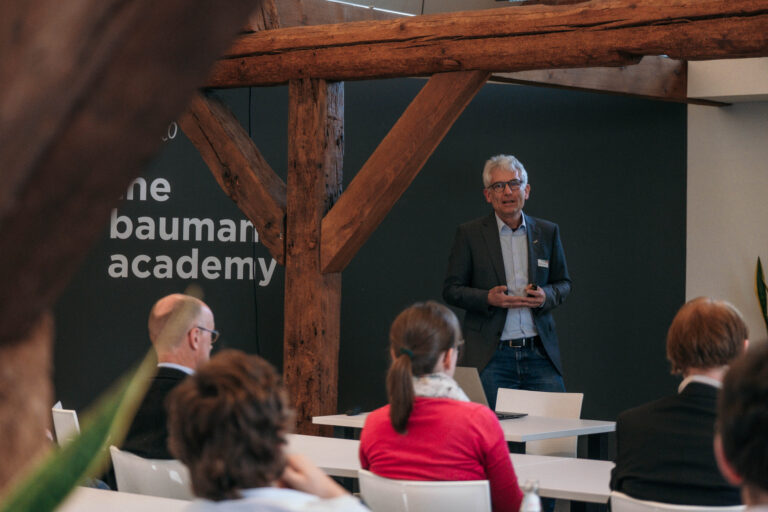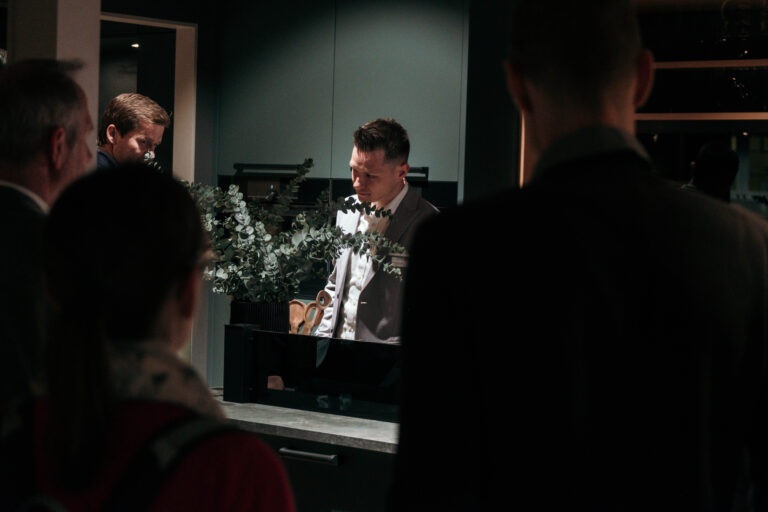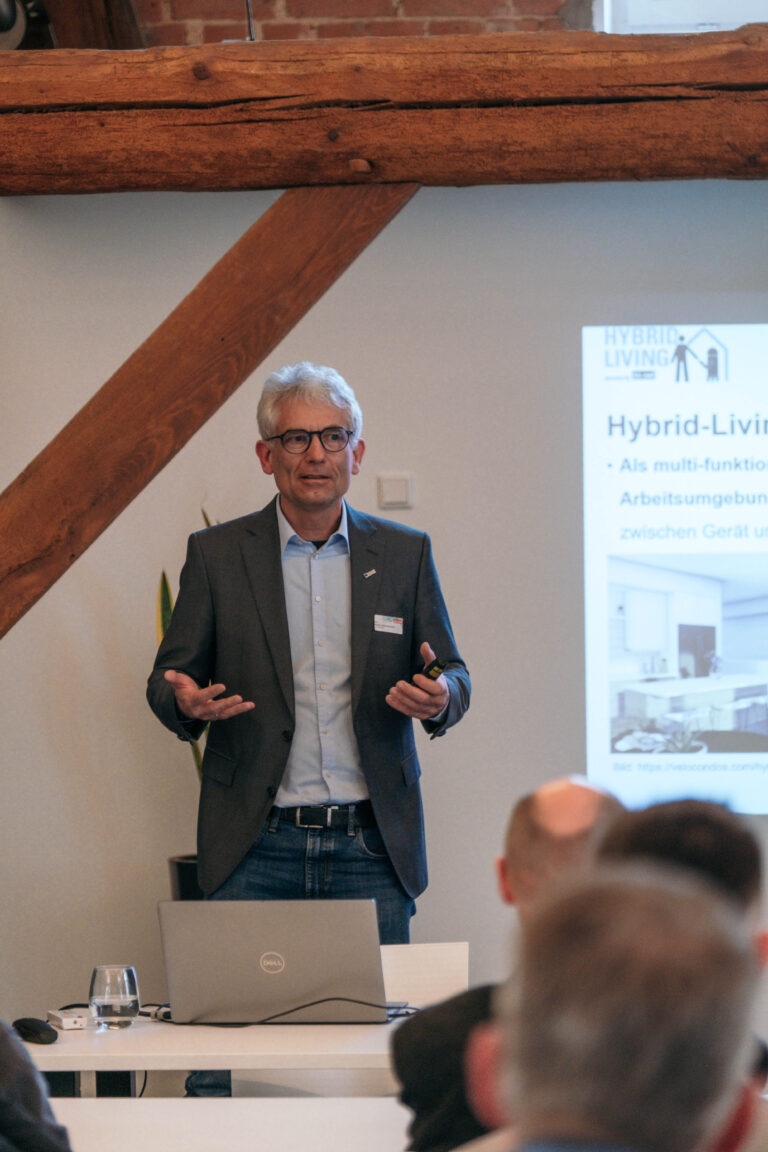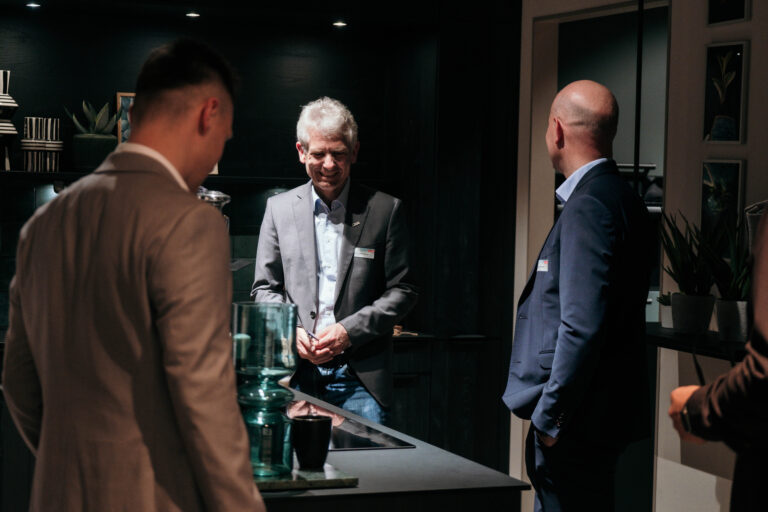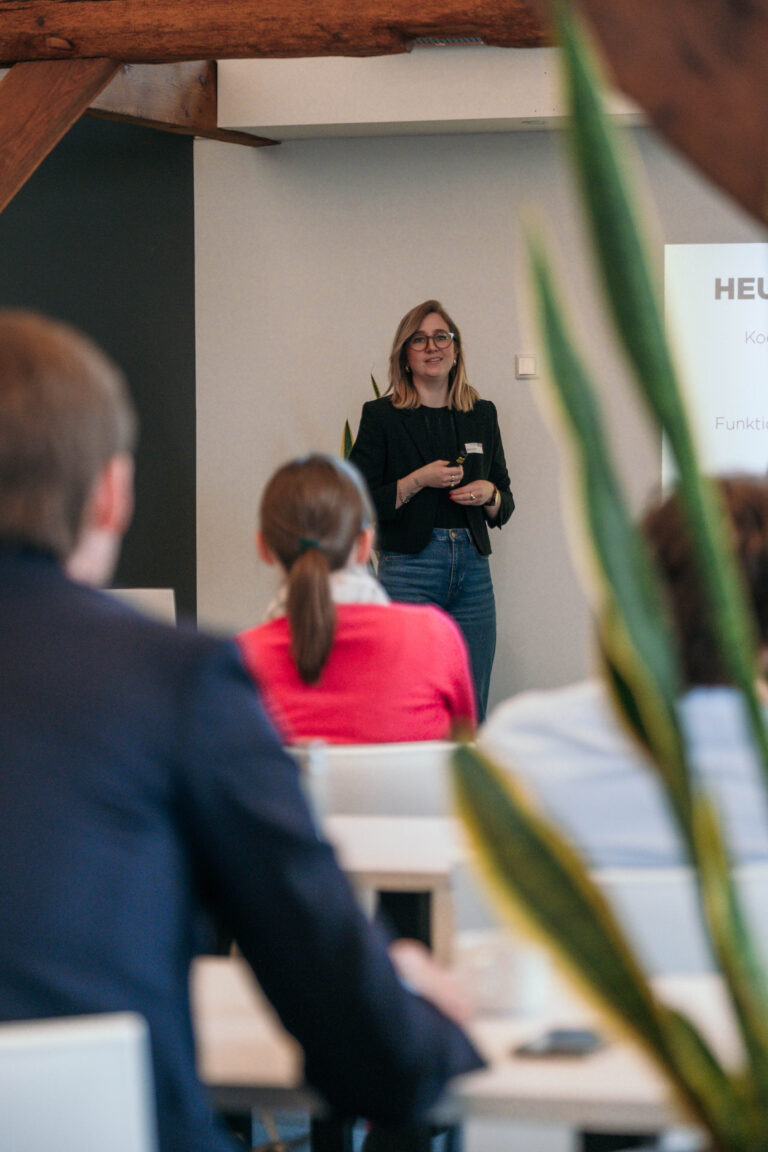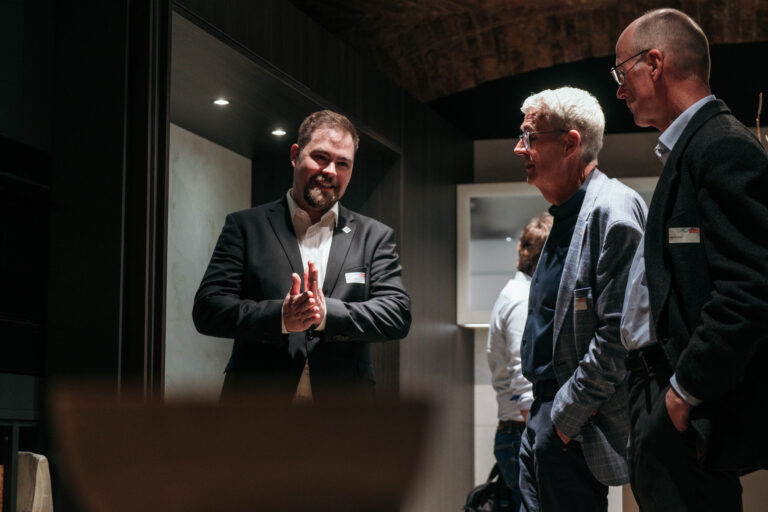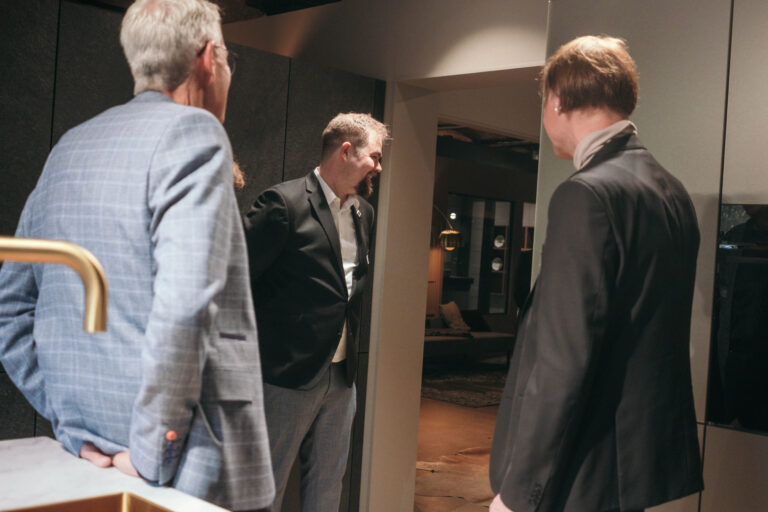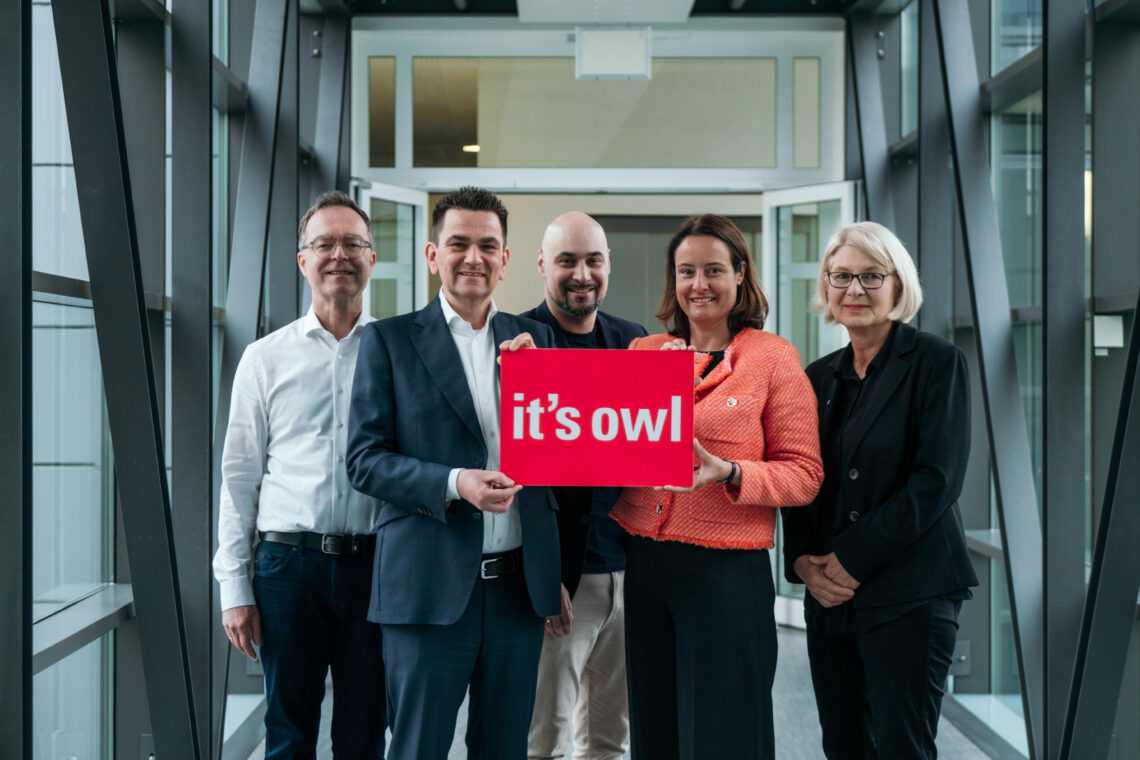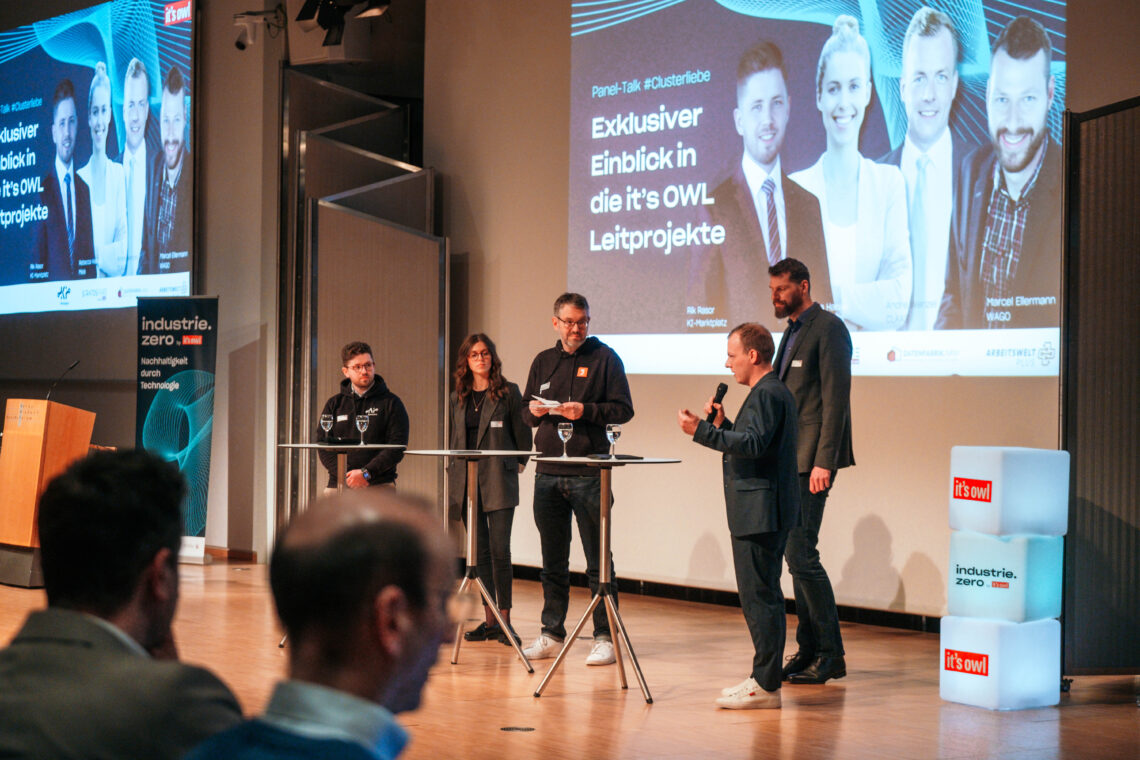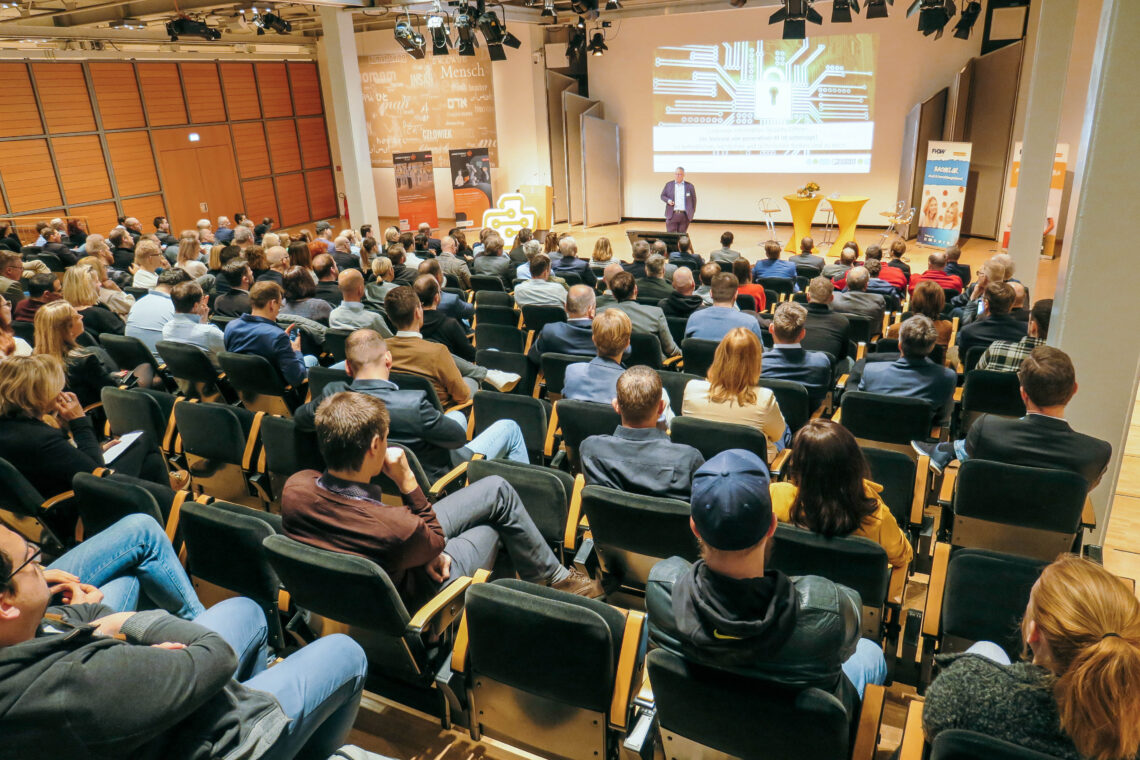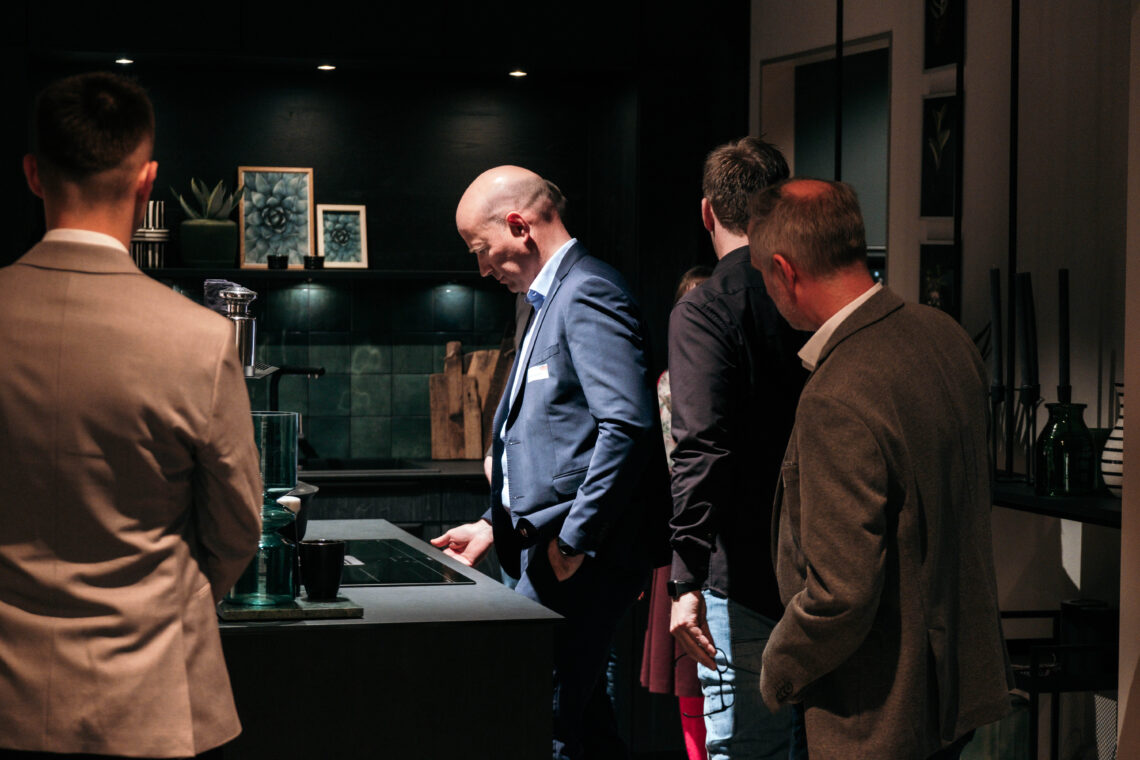
AI, robotics and craftsmanship: a look into the kitchen of the future
What role does AI play in kitchens and when will a robot help us empty the dishwasher? Around 30 representatives from companies and research addressed these and other questions at the ‘it’s OWL meets Bauformat Küchen’ event. The it’s OWL core company Bauformat Küchen offered participants insights into the development of kitchen production and demonstrated the latest trends and technical innovations with an exclusive tour of the exhibition. In addition, the it’s OWL project ‘Hybrid Living’ presented how a robot can provide support in the kitchen of the future and why the robot needs more than one arm for this.
Our kitchens have long since gone digital: the hob and oven can be controlled by app, recipes are implemented via voice recognition and smart sensors let you know when the food is ready.
Between smart operation and smart production
The intelligent kitchen consists primarily of intelligent appliances. However, artificial intelligence and digitalization also play a major role in the production of kitchen furniture, although certain work steps still require skilled manual work in order to meet the demands of a high-quality kitchen.
“For us as a kitchen furniture manufacturer, innovation and AI primarily take place in the area of process optimization,” says Hélène Bangert, Head of Strategic Marketing at the Baumann Group. The extent to which the company benefits from digital technologies is particularly evident in the automation of production and the optimization of digital services for customers.

it’s OWL as an engine – for kitchens and cooperation
For this reason, the company values the collaboration within the it’s OWL technology network. “We live and breathe this network. Precisely because it’s OWL focuses on digitalization and AI – that’s exactly what we need in our production. The exchange with other companies from OWL, especially with the hidden champions, really helps us move forward,” says Sabine Brockschnieder, Managing Director of the Baumann Group.
The it’s OWL project ‘Hybrid Living’ brings innovation to life in the kitchen. “In this project, we are investigating how robots can support people in the kitchen,” says project manager Dr. Sven Wachsmuth from Bielefeld University. Wachsmuth introduced the project to the participants and presented the initial findings.
It is particularly relevant in the kitchen environment that the robot does not only have one arm. With two arms, the robot can simultaneously open the dishwasher and put the cup in or hold a pot and stir the soup in it.
What sounds like a trivial task poses an enormous challenge in practice: Different kitchen equipment, unpredictable positions of dishes, varying shapes and weights – all this makes robotics in private households much more complex than in industry.

Two challenges for the AI kitchen
On the way to the kitchen of the future, the it’s OWL Hybrid Living project team has identified two key challenges: Firstly, every kitchen is different – so the robot must learn to adapt flexibly to new environments. And secondly, it has to communicate – with people, but also with smart home systems and networked appliances.
This is where AI approaches that have already proven themselves in industry come into play – for example in the areas of image processing, voice control and networked control systems. It’s not about off-the-shelf robots, but about adaptive assistants that can adapt to people and their environment.
This is ‘it’s OWL meets’
At ‘it’s OWL meets’, companies open their doors: in presentations and guided tours of production, development or showrooms, they provide an insight into current developments and trends. Afterwards, there is room for discussion and exchange over a snack. ‘it’s OWL trifft’ is aimed at management and developers from companies, universities, research institutes, networks and business-related organizations. The number of places is limited.
